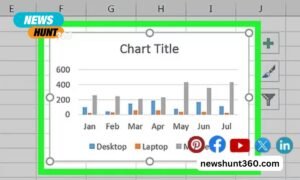A solar battery is a must-have gadget alongside the solar panels and the inverters. These batteries are important for any home relying on solar power. Its work is tostore surplus electric power harnessed from the sun by the solar panels thus ensuring power supply even after the sun is gone.
This article discusses the must knows before making your next move in the pursuit of a solar battery.
In recent years, people have gained consciousness on the need to harness free natural energy. Among a variety of methods of free energyharvesting is photovoltaic energy harvesting. It is not rare to find solar panels on rooftops since this is the dominant method of free energy harvesting.
However, there is a need to ensure that this solar energy harvested isn’t just used at the time of harvest, but also for a longer periodafterward. As such, solar batteries come in handy for the task.
Below are some important aspects to consider when buying a solar battery.
Power Rating
The power (electricity) output (discharge) of the battery at a given time is a key thing to consider. It is expressed in kilowatts (1000watts). This factor helps you know the number of appliances that can run simultaneously under its power providence. For the best suiting battery, always consider your gross power consumption.
Battery Size
There are different battery sizes, all of which influence the performance of your solar battery. Battery size is expressed in kilowatts hour (kWh), which is the amount of stored power the battery is capable of discharging per hour of use. This happens when solar panels can’t generate enough power for the appliances, usually at night or on cloudy days.
In other words, this could be termed usable storage power. Perhaps, your choice of battery should be influenced by the power consumption of appliances to be run by the battery. Size also determines how long a battery provides power.
Battery Type
Lead-acid batteries used to be very common solar batteries. However, Lithium-ion (Li-ion) batteries have become the favourite batteries for many people. They last longer with high rating performance than the lead-acid batteries. The solar battery prices in Kenya are heavily influenced by the battery type.
The efficiency and high performance of the Li-ion batteries give them a chance to be very pricey as compared to the lead-acid accumulators hence the best type you could choose.
From left; The lead-acid and the Li-ion solar batteries.
Roundtrip efficiency
This is the amount of power you can use from the battery in comparison to the amount it used to store it. For example, a battery thatgets 8kWh from the solar panels, but actually stores 6kWh of usable electricity, then, it uses 2kWh to store the 6kWh energy and release it. Therefore, the roundtrip efficiency of the battery is 75%.
To get the best service battery, you can go for one with greater or equal to 80% roundtrip efficiency.
Lifespan
Of all the other factors, lifespan remains in the list of aspects for all products you like to buy. The lifespan of solar batteries is expressed in terms of years, Estimated cycles (amount of times the battery can be charged and discharged), and estimated throughput (quantity of electricity released by the battery at a given time that depends on its starting capacity.
A battery warrantied to operate at greater than or equal to 70% of its original capacity or over 10 years is a gadget worth your money.
Conclusion
The solar battery is a very important device that should be bought with a lot of care to avoid frustrations thereafter. This article contains most of what you need to use when buying a solar battery.




